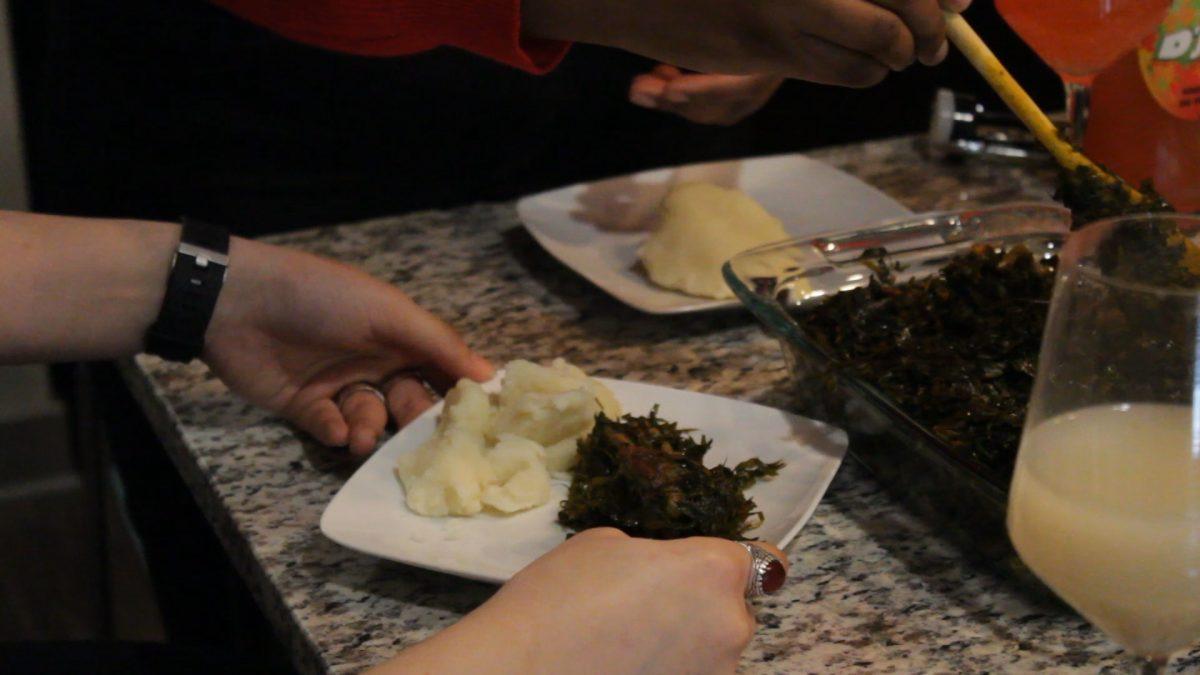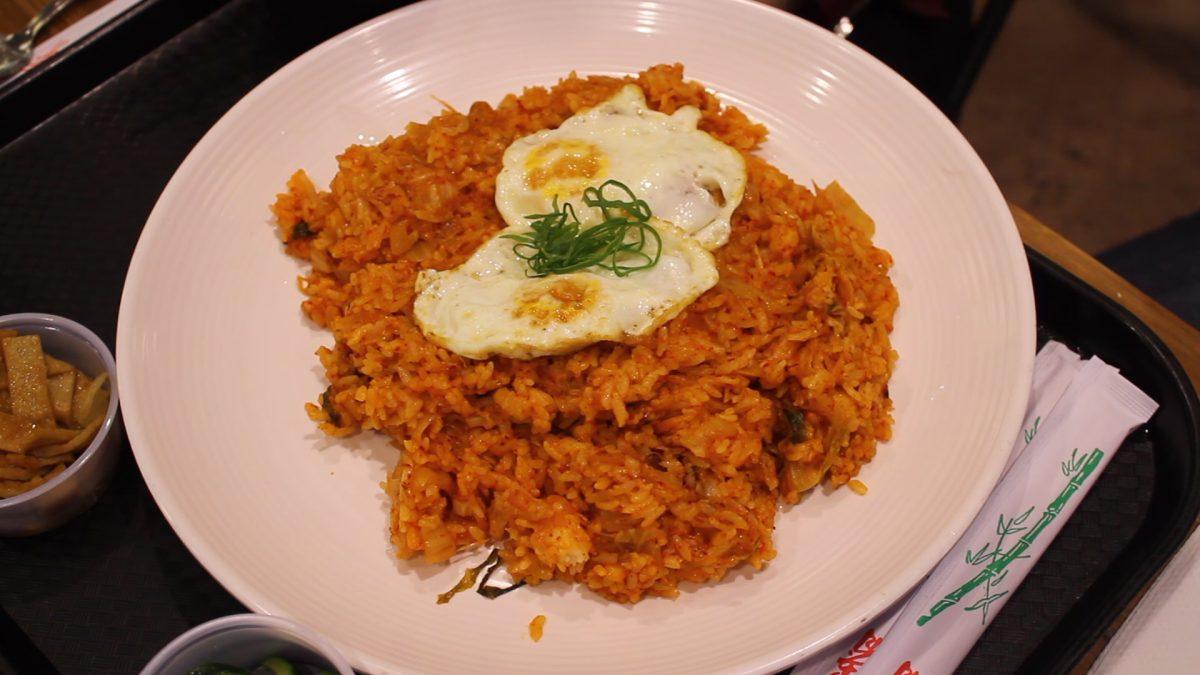
Although African cuisine in general has been significantly influenced by centuries of colonialism, it still remains fairly unique compared to other cuisines in neighboring continents and countries. This episode, I had the opportunity to make a traditional Cameroonian dish, eru, with fellow Mercury staffer Cindy Folefack.
Contrary to what I believed, eru is actually pronounced “err-oh,” with a guttural “r.” Eru is a Cameroonian dish made from okazi leaves, spinach and different types of meat such as beef, turkey or fish. The okazi leaves have a surprisingly large amount of protein and make for a sizeable meal when combined with the different meats. Eru is traditionally eaten with fufu, which is a staple side food made from ground cassava or plantain. Mixed with water and vigorously pounded in a pot, fufu is fluffy and doughy.
Making the eru was simple enough and wasn’t very different from making a stew or soup. Folefack had me chopping beef chunks to be simmered in a pot along with some chicken bouillon cubes, dried fish and crayfish. The dried fish still had the bones in them and were fairly sharp so Folefack instructed me to hold the bag of dried fish from the top so my fingers wouldn’t be poked by the bones in the bag. Much to my despair, she added a hefty amount of the dried fish with the bones still intact into the pot.
She soaked the eru leaves in a large bucket of water and left it to sit for about 15 minutes. After the meat was fairly soaked and cooked through, she added spinach and eru leaves. She also garnished the stew with some oil from large bottle filled with a thick bright orange substance, which turned out to be palm oil. I noticed throughout the cooking process that she added little to no spices other than palm oil and the bouillon cube, which was added for taste.
Fufu was even simpler to make — we added a pink-tinted flour to a boiling pot of water and stirred vigorously to make the fluffy dough. We then wrapped it in plastic to maintain its shape and left it to cool.
When we sat down to eat the eru, Folefack gave me some palm wine, which is a drink made from the sap of palm trees such as coconut and date palm trees. It looked very milky and green and tasted faintly of kombucha drink and ginger ale, but without the carbonation. She told me repeatedly that she hated the drink, but I ended up finishing my glass gleefully as she looked on in disgust.
Trying eru was something entirely different. Folefack instructed me to take a bit of the fufu and eru together into one morsel in my fingertips. This was something I was used to because we use the same method to eat Pakistani dishes, except we use thick bread called roti or naan. During the first bite, I felt something hard and sharp in my mouth and was terrified that it was a fish bone. Thankfully, it turned out to be the okazi leaves, which were hardy and thick. The okazi leaves and spinach went wonderfully with the beef and other meats in the dish. The flavor was rich, and I was surprised to note that neither the fish nor the beef overpowered the other. The fufu tasted like a thicker version of mashed potatoes, but the combination of soft fufu and hard and chewy eru worked well together.
It is interesting how this Cameroonian dish doesn’t include any sort of spices beyond basic salt, pepper and flavors from different meats. Folefack told me that African dishes usually contained so much meat that sometimes she would crave vegetarian dishes. The stew smelled strong but fresh, and I could sense that the taste would mostly consist of the flavors of the beef, spinach and Okazi leaves themselves. Coming from a culture where we normally marinate everything we eat in masala, spice powders and oils, it was a strange concept for me, but it wasn’t an unpleasant experience. On the contrary, I found it refreshing to be able to experience the raw flavors of the ingredients of a dish, and eru was definitely a worthwhile dish to try.

















